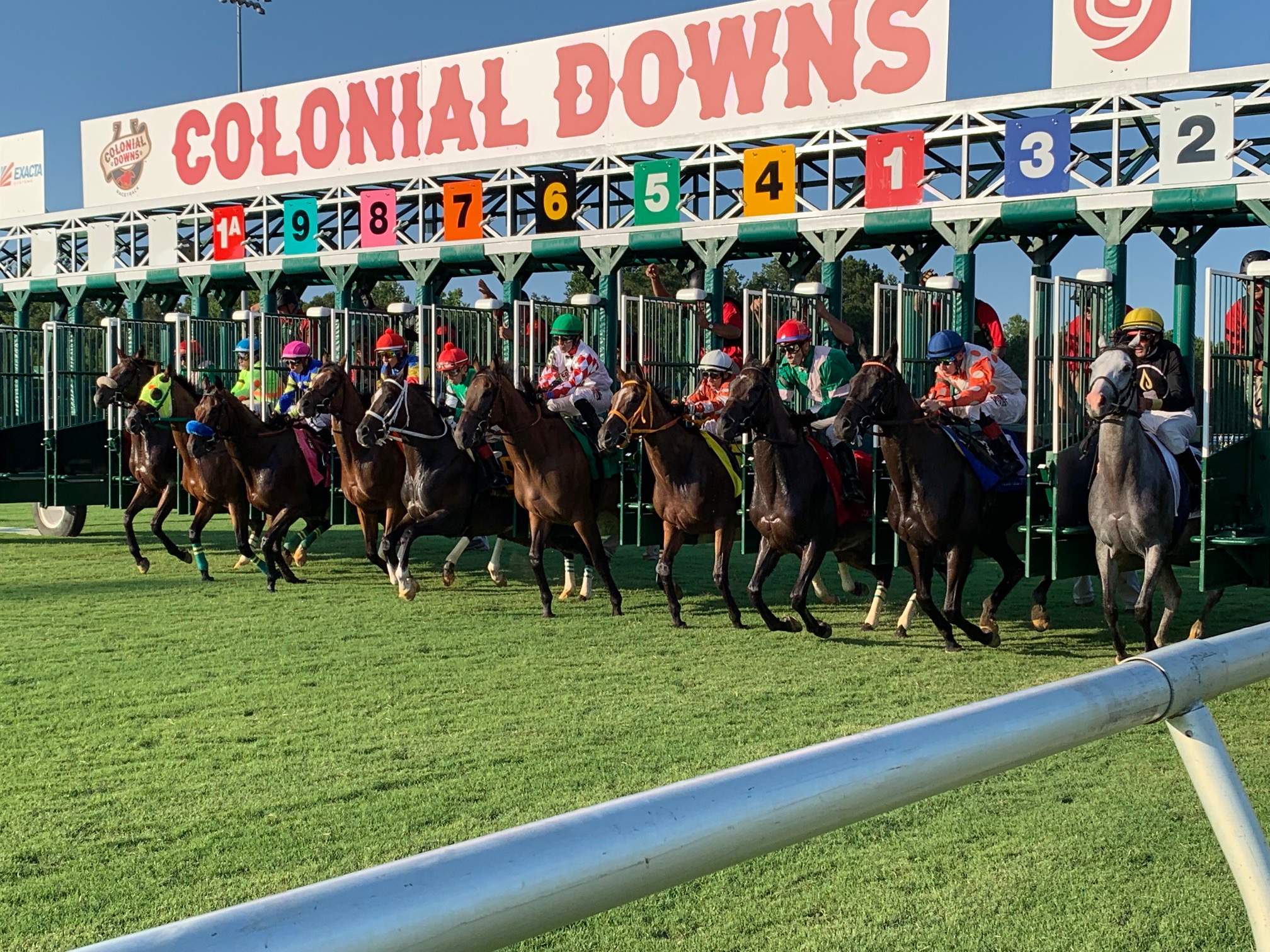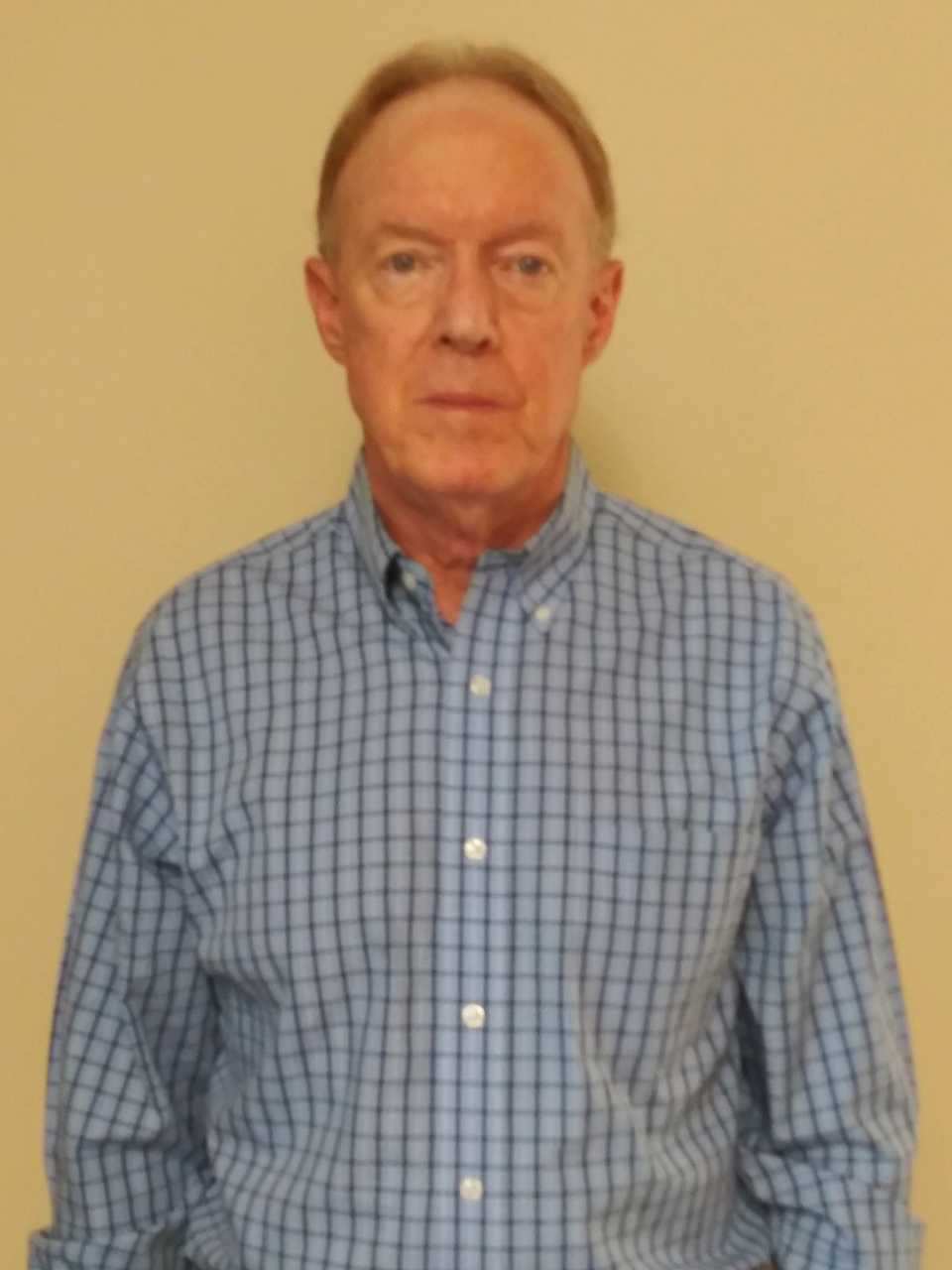When Colonial Downs opens its barn area July 5 and kicks off its summer race meet July 19, Rick Williams will begin his new role as Safety Officer and though there isn’t a formal job description that includes his every duty, decades of experience in track operations and regulatory work will certainly come into play.
The new Mid-Atlantic Strategic Plan to Reduce Equine Fatalities lists 23 items that a Safety Officer is responsible for overseeing. The job is to ensure that all activities and practices involving the training and racing of horses at the track meet required safety standards and regulatory guidelines.
Among them are to monitor daily backside activities and practices in the barn area for compliance with therapeutic and race day medication regulations. Another is to make recommendations to track management and regulators to ensure the welfare of horses and riders and the integrity of racing.
Williams’ diverse background in the sport made him a natural candidate for the job. Over the years, he has been a groom and jockey agent and has worked front side jobs in photo finish, mutuels, track maintenance and beyond. In the last 15 years of full-time work — he retired in 2012 — he held a regulatory position with both the Ohio and Kentucky Racing Commissions and was involved in the Breed Development Fund of both.
“I learned something at every stop along the way,” said Williams. “In regulatory roles, I served on a lot of committees that addressed rules, safety and medication issues. I really enjoyed that part of it — digging into the rule book and making changes that helped better the game. In Ohio for instance, we came up with a process of reviewing the rule book annually — to take a chapter each year and tear it apart. Of all the things l’ve done, that aspect made me feel best — the process itself of a project I was working on.”
Before accepting his latest position, Williams wanted to make sure safety of the horse was paramount in his role. Once he received that confirmation from Colonial’s VP of Racing Operations, Jill Byrne, he accepted.
“I was familiar with Jill from my time in Kentucky and learned that she is a straight shooter and doesn’t waste time beating around the bush. I learned she cares about horses and has absorbed a good horsemanship approach to many things. The business we are in is about the horses and should start and finish there,” he added. “I think the most important thing is to maintain open communication with management, regulators and horsemen. I hope the horsemen look at me as someone trying to enlighten people on the rules, especially those concerning safety. We want the horsemen to enjoy their time here and there are certain things we need to do to maintain that safety aspect. Each day should operate at the highest level of standards, from the way you treat the animals to the way you treat the public.”
“Rick will be another set of eyes, watching horses in the barns, on the track, and reporting to track management with something that may not look up to our standards, the safety and integrity and care of horses and the horsemen that we expect,” said Byrne. “He’ll also work with Dr. Caruthers (VRC Equine Medical Director) in assisting her and her veterinary team as well as the stewards and racing office .”
Since retirement from full time work, Williams has taken part-time jobs here and there at places that interest him, and at places he can work with people he respects. One such person is Colonial Downs’ Director of Racing Allison DeLuca. A 2019 visit with her at the New Kent track led to a placing judge position at the abbreviated 2020 meet and his new position in 2021.
“Allison is a dear friend and I’ve worked with her on and off in Kentucky for about 30 years,” said Williams. “When I first saw the layout of Colonial’s dirt track and turf course, it was interesting to me and impressive to say the least. I always knew of Virginia’s rich foundation of breeding but to see the plant for the first time, it’s just a place that needs to host racing. I’ve been to about every major racetrack in the country and this place is just beautiful.”
Williams grew up in a racing family. His father was born in Oklahoma where he was a third-generation horseman and initially rode at bush tracks in Kansas, Oklahoma and Texas. He worked his way up to recognized tracks like Oaklawn then moved east and rode at Monmouth and at circuits in Ohio and Florida. In all, he rode for 18 years.
Williams, who turns 68 this year, was born in Long Branch, New Jersey and currently resides in Grove City, Ohio — near the former Beulah Park — his mother’s hometown. Although his grandmother wasn’t a hands-on horse person, she loved horse racing and ran a restaurant in Grove City. “Whenever I went to get lunch at the restaurant after school, she would throw a Daily Racing Form in front of me and tell me to pick out a daily double before I could order food. It was something I had to do to get lunch.”
Even though he has worked some of racing’s premier events like the Kentucky Derby, Kentucky Oaks and Breeders’ Cup, Williams paused when asked if he considers himself to be a fan of the sport.
“All I’ve known from day one is horse racing,” he said. “I do get pumped up at those big events but some of the most memorable races I remember aren’t necessarily Derby or Cup races. It could be an every day race where you simply witness something special. Pat Day’s ride aboard ’92 Derby winner Lil E. Tee in the Jim Beam Stakes at Turfway that year stands out. I remember seeing Ernie Poulos’s Black Tie Affair race in Kentucky. He was just a hard knockin’ handicap horse who was always well placed. I respect the day-to-day things that go on in racing.”
“Horsemen are 24/7,” continued Williams. “There aren’t many jobs in today’s world where you have to be as dedicated to your job as someone who works in horse racing. I have great respect for them and have great respect for the game. I consider myself a horseman, but a horseman who believes in the rule book.”



